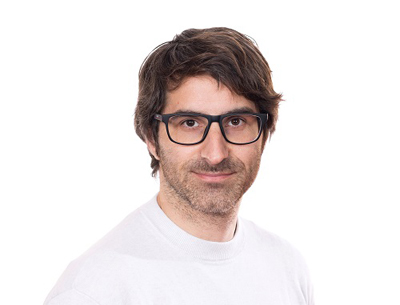
12/07/2022 - General information
This is one of the fifteen biomedical projects selected in the CaixaResearch Validate call. In this case, the study led by the researcher from the Hospital del Mar Medical Research Institute seeks effective immunotherapy treatment for breast tumours.
The "la Caixa" Foundation is supporting 15 leading biomedical research projects in Spain and Portugal in the CaixaResearch Validate 2022 call. These are early-stage projects that the organisation wants to support to accelerate their arrival on the market, thereby helping them reach patients who may need them. Among those selected is a project led by Dr. Toni Celià-Terrassa, who heads up the Cancer Stem Cells and Metastasis Dynamics laboratory at the Hospital del Mar Medical Research Institute (IMIM-Hospital del Mar).
A panel of European experts and professionals in the field of life and health sciences selected these 15 projects from among the 110 presented in the call. Those chosen receive up to 100,000 euros from the programme to validate their technologies and design a roadmap to assess them.
This time, six projects are from research centres, universities and hospitals in Catalonia: International University of Catalonia (UIC), Bellvitge Biomedical Research Institute (IDIBELL), Barcelona Biomedical Research Institute (IRB Barcelona), the Hospital del Mar Medical Research Institute (IMIM-Hospital del Mar), the Institute of Advanced Chemistry of Catalonia (IQAC-CSIC), and Hospital Sant Joan de Déu. Another four projects are from Portugal, two from Madrid, one from the Basque Country, one from Galicia and one from Andalusia.
Of the 15 projects selected, eight are in the field of new therapy and drug development, four are new clinical devices, two are diagnostic techniques, and the last is a digital health project. As a result, CaixaResearch Validate is boosting innovation and the transfer of both knowledge and technologies, supporting the creation of new products and research-based companies.
In the words of the Corporate Director of Research and Health from the "la Caixa" Foundation, Àngel Font, "With this funding call, we want to break down the barrier between laboratories and the market, adding value to the scientific knowledge created by researchers on the Iberian peninsula and taking their innovations to the people who need them most: the patients."

Toni Celià-Terrassa.
Progress through financial and training resources
In addition to the financial support, the researchers have already begun to receive specialised training in areas that are key to the development of their work. In the initial weeks of training, they have had their first contact with mentors and expert groups linked to the programme, from whom they have learned about technology transfer, tools for improving their valuation plan, product development, intellectual property legislation and presentation to investors, as well as other topics.
In the coming months, they will continue to receive training in aspects such as negotiating and closing deals, meeting with relevant investors in the health and life sciences sector and receiving their feedback, as well as acquiring basic financial know-how. They will also receive support from mentors who will advise them during the development of their valuation and commercialisation plans, as well as throughout the development of the programme, actively supervising the projects and guiding their evolution.
The call for proposals was held in collaboration with Caja Capital Riesgo and in partnership with the Fundação para Ciência e a Tecnología (FCT), of the Portuguese Ministry of Science, Technology and Higher Education, which subsidised one of the successful Portuguese projects, promoting Spanish-Portuguese collaboration between research centres and universities on the Iberian Peninsula. Together with these institutions, CaixaResearch Consolidate also provides a funding line aimed at more mature innovations, for which the new shortlisted projects will be announced this autumn.
Making immunotherapy effective for treating breast tumours
The project led by Dr Toni Celià-Terrassa is analysing a new way of using immunotherapy in breast cancer. This approach has revolutionised the treatment for some types of cancer, including melanoma and certain lung tumours, while for others, such as breast cancer, which is the second leading cause of death from cancer among women, it is still not very effective. The reason, according to researchers at the IMIM-Hospital del Mar, seems to be an error in the mechanism of a specific protein, LCOR.
Under normal conditions, this protein allows the immune system to destroy diseased cells. Specifically, LCOR ensures that these cancer cells display antigens on their outer membrane, molecules that the body's defences recognise, allowing them to identify the tumour cells and attack them. However, in some breast tumours, this mechanism does not work and the tumour cells do not display the antigens, making them invisible to the immune system. This means that immunotherapy treatments are ineffective and, furthermore, this leads to the development of resistance to these therapies.
IMIM-Hospital del Mar researchers have developed an innovative experimental system based on messenger RNA, very similar to the technology used in the Moderna and Pfizer vaccines developed to combat COVID-19, with which they produce LCOR and manage to make the tumour cells visible and sensitive to the immune system. They have found that by increasing the levels of this protein, they can increase the effectiveness of immunotherapy treatments against breast tumours.
Servei de Comunicació:
Marta Calsina(ELIMINAR)
Tel:
(+34) 93 316 06 80
Doctor Aiguader, 88
08226 Barcelona
© Institut Hospital del Mar
d'Investigacions MèdiquesLegal Notice and Privacy Policy | Cookie Policy | Site Index | Accessibility | Find Us | Contact